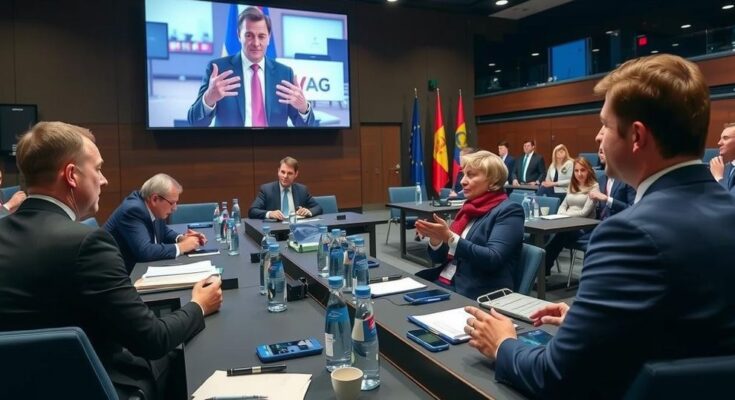TikTok’s influence in Romania’s recent presidential election has prompted EU lawmakers to call for the CEO’s testimony regarding the platform’s role in alleged disinformation and radicalization. The surprising victory of candidate Călin Georgescu raises concerns about fake accounts and campaign funding, prompting scrutiny under the Digital Services Act.
In light of the recent Romanian presidential election, which saw the unexpected victory of ultranationalist candidate Călin Georgescu, TikTok’s influence has attracted significant criticism. The European Parliament has summoned TikTok’s CEO to discuss how the platform may have facilitated political campaigning, particularly through purportedly coordinated efforts involving fake accounts. Lawmakers are concerned about disinformation and radicalization risks associated with TikTok’s operations in Europe, emphasized by the call from Valérie Hayer, head of the liberal Renew Europe group.
The events surrounding the Romanian election highlight growing apprehensions regarding the role of social media platforms in shaping political outcomes. With the Digital Services Act (DSA) instituting guidelines for online content, lawmakers are scrutinizing TikTok’s adherence to these regulations, particularly given that Georgescu’s campaign reportedly leveraged an extensive TikTok presence. This incident has raised alarm regarding possible foreign influence and campaign financing mechanisms that may compromise democratic processes in Europe.
The discourse surrounding TikTok’s involvement in the Romanian elections signifies a pivotal confrontation between technology and political integrity in Europe. As concerns mount regarding manipulated media environments leading to radicalization and misinformation, the call for accountability from platforms like TikTok is imperative. This situation serves as a critical reminder of the need for stringent oversight in the realm of social media to safeguard democratic values.
Original Source: www.politico.eu




